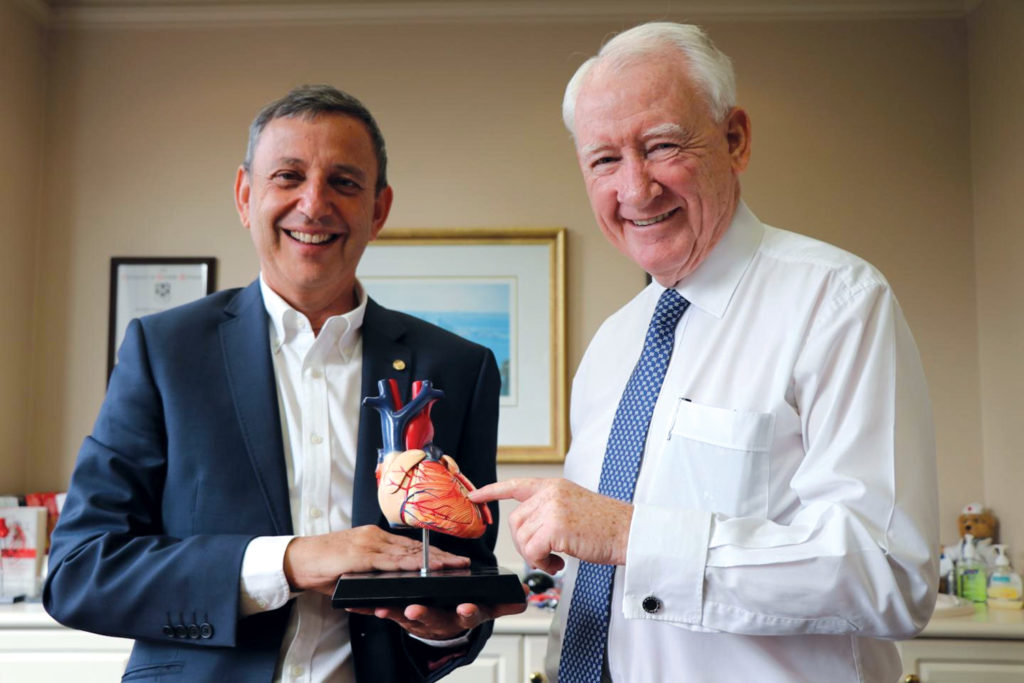
Colchicine is an ancient, yet sophisticated drug with multiple effects on cellular function involved with inflammation and healing. It has long held FDA approval for the life-long treatment of Familial Mediterranean Fever and treatment and prevention of gout.
There is growing evidence that the inflammatory process in atherosclerotic plaque occurs in response to crystallisation of cholesterol within the atherosclerotic bed. This raises the possibility that colchicine, which inhibits aspects of crystal-induced inflammation, may hold promise in the treatment of atherosclerosis.
The LoDoCo2 trial demonstrated that colchicine 0.5mg daily was beneficial for patients with chronic (stable) coronary disease, over and above other proven secondary prevention therapies.
Among controls, the risk of CV death, myocardial infarction, ischemic stroke or ischemia-driven revascularisation was 3.6% pa. In those on colchicine the risk was reduced by 31%, due mostly to its significant effect on myocardial infarction and ischemia-driven revascularisation.
These effects emerged early and continued to accrue during five years of treatment. The results are consistent with the LoDoCo pilot and the COLCOT trial which showed that colchicine 0.5mg daily affords similar benefits to patients following a recent myocardial infarction.
Long-term use of low-dose colchicine appears safe including in children, teenagers and during pregnancy and has no known effect on fetal development. It does not affect liver or renal function, cause or aggravate bleeding, lower blood pressure and is not pro-arrhythmic.
Experience from strictly controlled clinical trials shows that colchicine 0.5mg daily compared to placebo does not appear to increase the risk of cancer, infection, neutropenia or myotoxicity even when used with full dose statins. Drug interactions other than with clarithromycin are also rare in the absence of renal impairment. As with aspirin and statins, the long-term effects of treatment will need careful ongoing scrutiny.
Clinical implications
It is likely that regulatory authorities will approve colchicine as a cornerstone treatment in patients with coronary disease alongside aspirin and statins. Currently its use for this purpose is ‘off-label’ and therefore a matter for the clinical judgement of the individual prescriber.
If prescribing low-dose colchicine off-label for secondary prevention in patients with vascular disease, avoid using it in those with advanced renal disease (creatinine clearance <30ml/min), known hematologic conditions with neutropenia or a requirement for clarithromycin, anti-fungal or anti-rejection therapy.
A trial of low-dose colchicine comes at low cost and little risk. Intolerance is infrequent, usually mild and short-lived once therapy is ceased. Early side effects can be largely avoided by starting at 0.25mg before graduating to 0.5mg daily. For over 90% of patients without early side-effects, long-term use is well tolerated and associated with a significant improvement in disease-free survival.
Key messages
- Trails show low-dose colchicine to have benefit in secondary prevention
- Colchicine is inexpensive and well tolerated
- Approval is likely but currently this use is ‘off label’.
Questions? Contact the editor.
Author competing interests: The authors participated in LoDoCo2.
Disclaimer: Please note, this website is not a substitute for independent professional advice. Nothing contained in this website is intended to be used as medical advice and it is not intended to be used to diagnose, treat, cure or prevent any disease, nor should it be used for therapeutic purposes or as a substitute for your own health professional’s advice. Opinions expressed at this website do not necessarily reflect those of Medical Forum magazine. Medical Forum makes no warranties about any of the content of this website, nor any representations or undertakings about any content of any other website referred to, or accessible, through this website.

